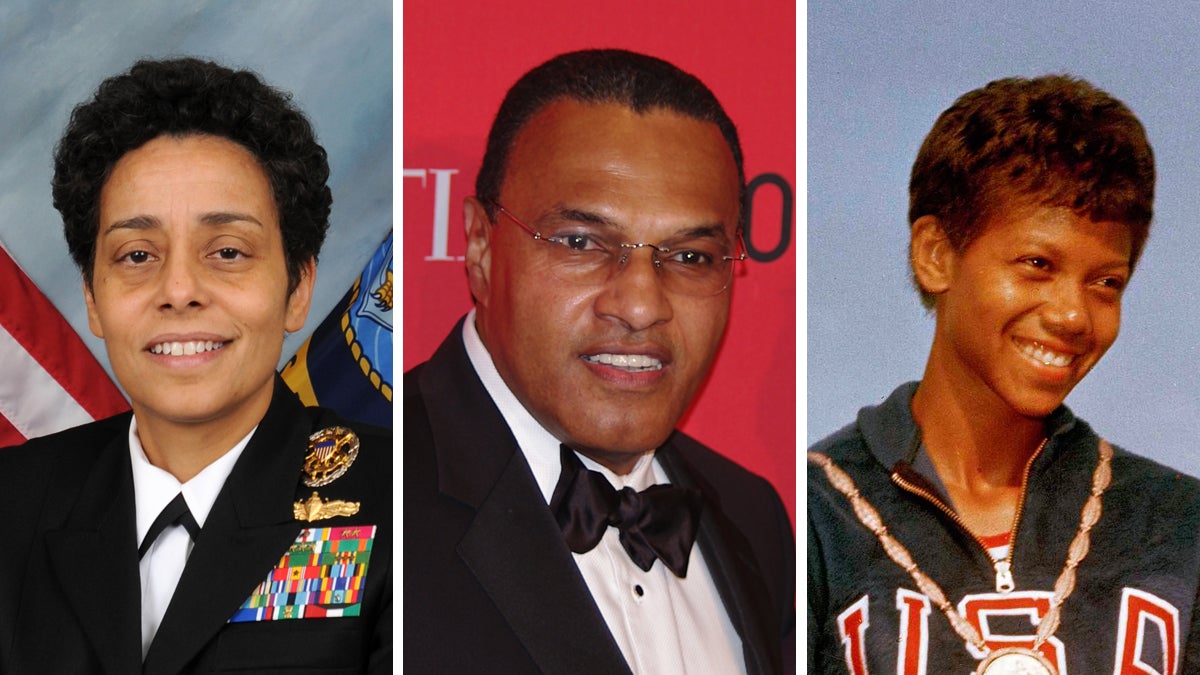Let’s remember more than pain next Black History Month

From left: Admiral Michelle J. Howard, Freeman A. Hrabowski, Wilma Rudolph
So much of Black History Month focuses on the negative. It is also especially important to remember the positive contributions as well.
So much of Black History Month focuses on the negative: the Atlantic slave trade, the trials of the civil rights movement, and the unflinching trend of police brutality are usually the first things people think about during the month of February. While these events are incredibly important to remember as the gap widens between those who experienced them and the generations that follow, it is especially important to remember the positive contributions as well.
We in Tribble Nation do just this every year with our Hall of Fame inductions, honoring those of African descent who have blazed a trail in history, proudly representing the greatness within people of the African diaspora. After much deliberation (and tribbulation?), the 2016 Tribble Nation Hall of Fame includes:
Cree Summer, voice actress
Barack Obama, first black president of the United States
Wilma Rudolph, track and field Olympian
Maurice White, singer/songwriter, producer, and composer
James Earl Jones, actor
Jackie Robinson, first black professional baseball player
Admiral Michelle J. Howard, highest-ranking woman in U.S. naval history
Our prestigious Legacy Hall of Fame honors those select few, regardless of ethnicity, whose contributions are also noteworthy. This year’s Legacy honorees are:
George Lucas, creator of “Star Wars”
Osamu Tezuka, creator of “AstroBoy,” father of modern Anime
Jerry Siegel & Joe Schuster, creators of Superman
Great selections, right? With a little bit of research, one could easily see why each of these people deserves such exemplary recognition. Still, there are scores of contributors whose names do not ring any bells for the average person — names like Carter G. Woodson, a scholar, author, civil rights activist, and educator, who in 1926 pioneered the celebration of “Negro History Week,” originally planned for the second week in February, to align with marking the birthdays of Abraham Lincoln and Frederick Douglass. The week of recognition became accepted and grew to encompass the entire month of February.
So it is in the spirit of Woodson that we present another name worthy of instant recognition, author, mathematician, and educator Freeman A. Hrabowski, III.
First brought to our attention during the 30th annual Black Engineer of the Year Awards Global Competitiveness Conference, presented by the good folks at U.S. Black Engineer Information & Technology magazine, Mr. Hrabowski is a prime example of excellence within the black academic community. Born Aug. 13, 1950, in Birmingham, Alabama, Hrabowski is the only child of two hard-working educators, who ignited his passion for STEM at an early age.
At the age of 12, Hrabowski had convinced his parents to allow him to march in the Children’s Crusade as a youth advocate during the civil rights movement. After only a brief time into the march, Hrabowski, along with the rest of the children, were swept up into a mass arrest, and spent five days incarcerated alongside hardened criminals. After their release, Hrabowski recalls an exchange with the Rev. Dr. Martin Luther King, Jr., who told him, “What you do this day will have an impact on generations as yet unborn.”
These words stuck with young Hrabowski, who has since dedicated his life to education and racial equality. Now serving as the president of the University of Maryland Baltimore County, Hrabowski has turned a small suburban college into a major university, renowned for its innovation and academic excellence.
He’s also the author of such titles as “Beating the Odds: Raising Academically Successful African American Males,” “Overcoming the Odds: Raising Academically Successful African American Young Women,” and “Holding Fast to Dreams: Empowering Youth from the Civil Rights Crusade to STEM.” Hrabowski has been awarded over 20 honorary degrees from universities across the country, and consults for the National Science Foundation, National Institutes of Health, and the National Academies. He is also a member of the American Academy of Arts and Sciences and the American Philosophical Society. (That last one was founded by Philly’s favorite adopted son Benjamin Franklin.)
The list of unknown black contributors to the fields of STEM are endless, including Evan B. Forde, the first African-American oceanographer to conduct a research mission aboard a submersible craft; Charles E. Anderson, the first African-American to earn a Ph.D. in meteorology; and countless others who go unrecognized in lieu of annual recollections of lynchings, segregation, and other social injustices.
With Black History Month freshly behind us, we in Tribble Nation feel that, while it’s important to honor those who have suffered for the sake of freedom, it’s also crucial to mention those who, regardless of their profession or background, have excelled in the face of adversity.
WHYY is your source for fact-based, in-depth journalism and information. As a nonprofit organization, we rely on financial support from readers like you. Please give today.

